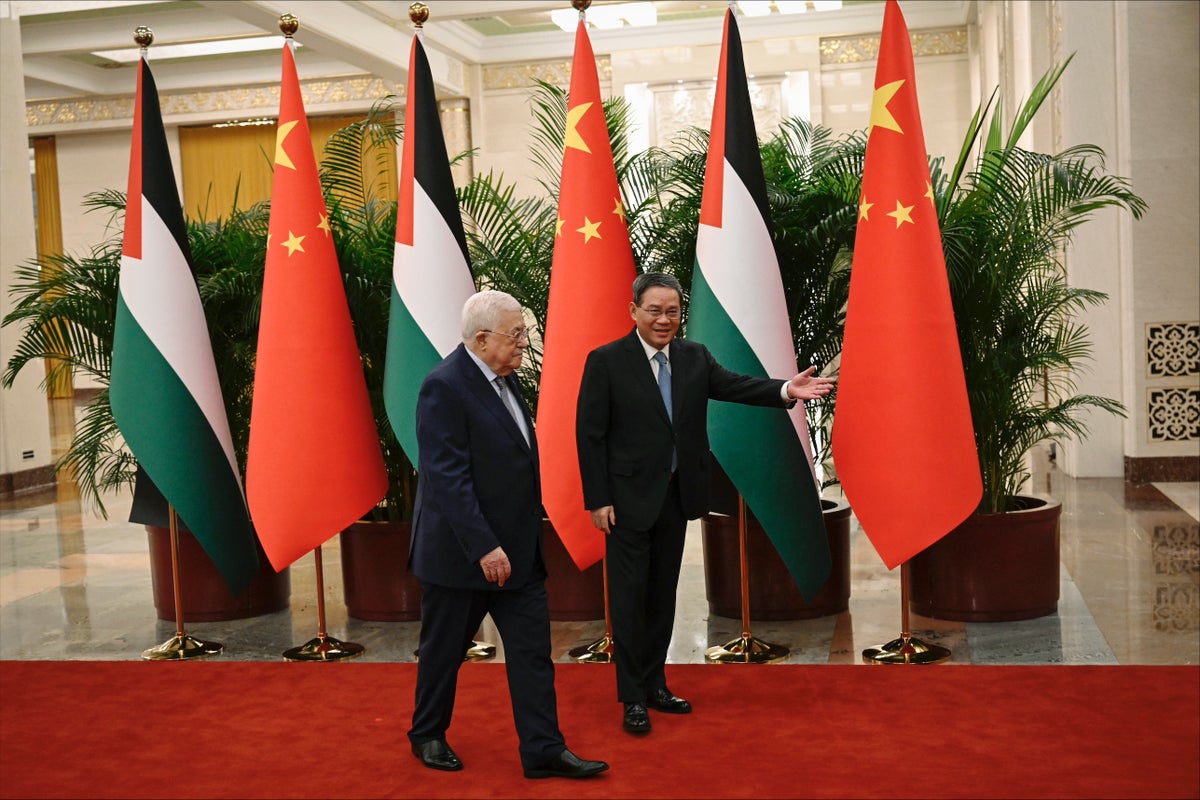
Palestinian leader Mahmoud Abbas wrapped up a trip to China Friday after seeking economic aid and voicing support for Beijing’s repressive policies toward Muslim minorities in the northwestern region of Xinjiang.
During his four-day visit, Abbas met with Chinese President and head of the ruling Communist Party Xi Jinping. The leaders then issued a joint statement endorsing Beijing’s domestic and foreign policies and repudiating Western concepts of human rights.
In the statement, the Palestinian Authority said issues regarding China's policy toward Muslims in Xinjiang have "nothing to do with human rights and are aimed at excising extremism and opposing terrorism and separatism.”
“Palestine resolutely opposes using the Xinjiang problem as a way of interfering in China's internal affairs,” the joint statement said.
That echoes Chinese propaganda surrounding the detention of more than 1 million Uyghurs, Kazakhs and other Muslim minorities in prison-like detention centers on little or no legal grounds — often merely for having a relative studying abroad or downloading the Koran onto their phones.
China says the widely-documented complex of heavily-guarded centers were intended to instill patriotism, purge radicalism spread over the internet and provide vocational training — and have now been shut down. Critics say many have been turned into prisons.
China has campaigned furiously to counter the outside criticism, and in the competition for resources and markets, Arab states have almost never openly expressed concern over Beijing's treatment of Muslims.
Followers of the religion make up around 2% of the population. The country is led by an officially atheistic party dominated by the majority Han ethnic group.







